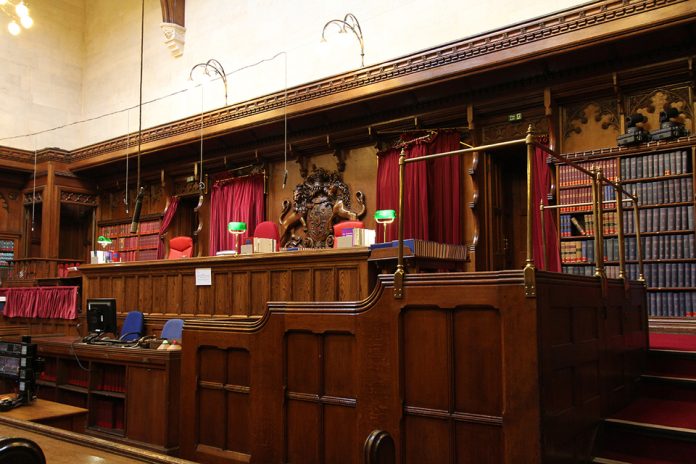Rape victims who pre-record their evidence are more likely to have a better experience of the court process, findings published today reveal.
Today’s report finds that victims who use the measure, which has been available in all Crown Courts in England and Wales since September last year, find their experience less intimidating as they do not have to face their alleged attacker in the full glare of a courtroom.
Other benefits include improved recall of events as a result of cross-examination being brought forward, normally nearer to the time of the alleged offence, and knowing exactly when they will need to give evidence. It also meant they were able to access vital support services earlier, such as therapy, without fear that it could be used against them in cross-examination.
The rollout of pre-recorded evidence is one of several actions the government is taking as part of the Rape Review Action Plan to give every victim the confidence to come forward and get support they need, and bring more rapists to justice. Our actions are working, the latest figures show that the number of rape cases reaching Crown Court has doubled since the Rape Review was commissioned in 2019 and that the government is closer to its target of returning to 2016 levels by the end of this Parliament. Pre-recorded evidence will help ensure all cases reaching court are supported in the appropriate way to see justice delivered.
Deputy Prime Minister, Lord Chancellor and Justice Secretary, Dominic Raab, said:
Pre-recorded evidence is an important part of our plan to improve rape victims’ experience of the criminal justice system – reducing the stress and trauma that many suffer as a result of facing court. This report shows it is making an important and positive difference.
Alongside better collaboration between police and prosecutors and a 24/7 support line we will stop at nothing to make sure that victims feel able to persevere with the process and bring more perpetrators to justice.
Today’s report finds that pre-recording evidence can create a calmer, less intimidating cross-examination experience for witnesses compared to traditional cross-examination in a trial. One witness who had pre-recorded their evidence said:
Making it possible to go and pre-record it, I have no words to explain how much pressure it took from my shoulders.
I feel safe, and I felt like I don’t have to meet anyone I don’t want to meet. I felt protected, just a safe environment to me.
A police officer interviewed for the evaluation report said:
I’ve […] watched the complainant giving evidence and I really felt for that person because they’ve just been pulled apart and in that horrible, hostile courtroom environment which I wouldn’t wish on anyone.
Other practitioners interviewed for the evaluation report – including Independent Sexual Violence Advisors (ISVA), at-trial advocates and police – highlighted the benefit of the witness knowing the exact date and time that they will give evidence, compared to traditional cross-examination where the witness may have to wait in court for days to give their evidence.
The report also found the reduced time between the alleged offence and the cross-examination could improve witnesses’ memory recall. This could be especially beneficial to vulnerable witnesses, particularly children, whose recollection is more at risk of impairment while waiting for trial.







